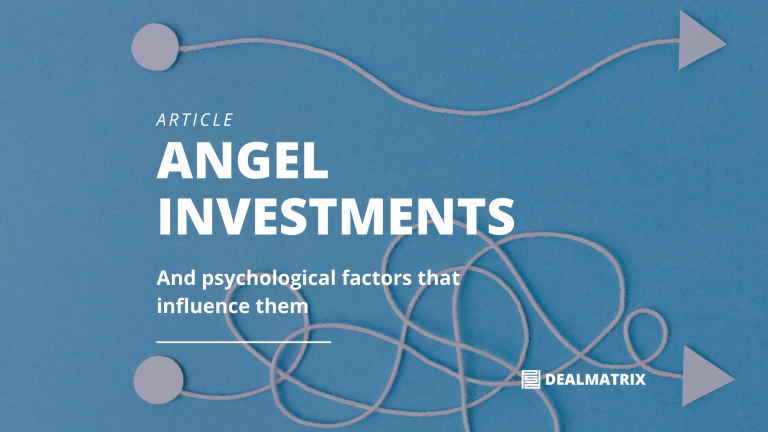While inspiration and emotion always have a part to play in the world of innovation and startups, most investors would probably like to believe that they’re paragons of rationality. But it’s pretty widely accepted that they’re human too — and business angels are no exception.
When an angel investor says ‘yes’ to a startup, it’s not all down to cold, hard logic.
We all know the simple stuff that goes into investment decisions: financials, competition, team, unique selling proposition, risk versus reward calculations, portfolio diversity and so forth. But what about the less tangible factors that might tip the scales either way?
To answer that, here’s a brief overview of some of the psychology that can influence all kinds of investors, including business angels.
The broader investment climate
Right now, we’re experiencing a time of unprecedented investment. According to Crunchbase, global venture investments reached $125 billion in the first quarter of 2021. (For a summary of the highlights in Europe, see this article by Venionaire Capital.) Despite the pandemic, there is something of a gold rush going on. And this broader context affects investor sentiment.
As with any ‘boom’, some will feel pressure to get their slice of the pie. Others may feel that this is a bubble about to burst, and are waiting for a correction. Much depends on their professional network and the prevailing feeling amongst the people they speak to on a regular basis.
Before they even look at an individual startup pitch deck, then, angel investors bring a certain attitude to the table. In this way, what’s going on in the wider world of investment can lead to different decisions at any given moment.
FOMO
As we just saw, some angel investors may fear committing because of the trends they’re seeing in the wider environment. But there’s another kind of fear at play, regardless of what’s going on in the world: Fear Of Missing Out.
Declining the chance to invest in a startup that goes on to great things is the stuff of angel investor nightmares. The thought of this happening looms particularly large when a business angel hears that other angels are interested in a particular startup. Though there may not be an actual ultimatum on the table, this is very much the same psychological phenomenon as when a car salesman tells you he’s got an interested buyer waiting on the other line!
FOMO works on both sides of the investment equation. Read about how it applies to startups in our earlier article
Reputation
Working as a counterbalance to FOMO is another bit of psychology that affects many (but perhaps not all) angel investors: the dread of looking like a fool.
Buying into a startup isn’t just financially risky, but also involves putting your professional reputation on the line. It’s good for investors to have a positive public image because this helps deal flow. And making an incorrect play could damage that image.
How much getting it wrong really has an impact on future business, and how much is just about pride, is open for debate. Clearly, one’s surrounding ecosystem can make an impact on one’s perceptions here: America is typically more positive about failure than Europe, embracing it as a learning experience. There, investors worry less about being seen to make a mistake.
But to some degree, reputation is a consideration for most business angels when they weigh up an investment decision.
Business angels syndicates such as the European Super Angels Club offer some degree of reputational protection in cases where it might be desirable. There is safety in numbers for investors, after all!
Human Connections
An emotional response still counts for plenty with angel investors. That’s where the startup’s storytelling comes into play. If something in a startup’s mission, vocabulary or vision resonates with the investor in some way, it’s a huge win for the startup. From that moment on, the business angel could be looking for reasons not to invest rather than reasons to invest. And that’s already a big achievement for the startup.
It comes back to the fact that investors are still human beings at the end of the day. If they’ve had direct personal experience of a particular problem in their lives, there’s no doubt they’ll feel something when a startup presents a solution to that problem.
Personal relationships are also important, particularly where angel investors are concerned. It’s very common for business angels to invest in startups founded by friends or family members — and this can very often be a deciding factor when choosing between one venture and another.
Check out the latest report on Investor Sentiment from Venionaire Capital to understand current investors’ moods and expectations better.
Prepare for your upcoming negotiations by having the first valuation overview in hand.

